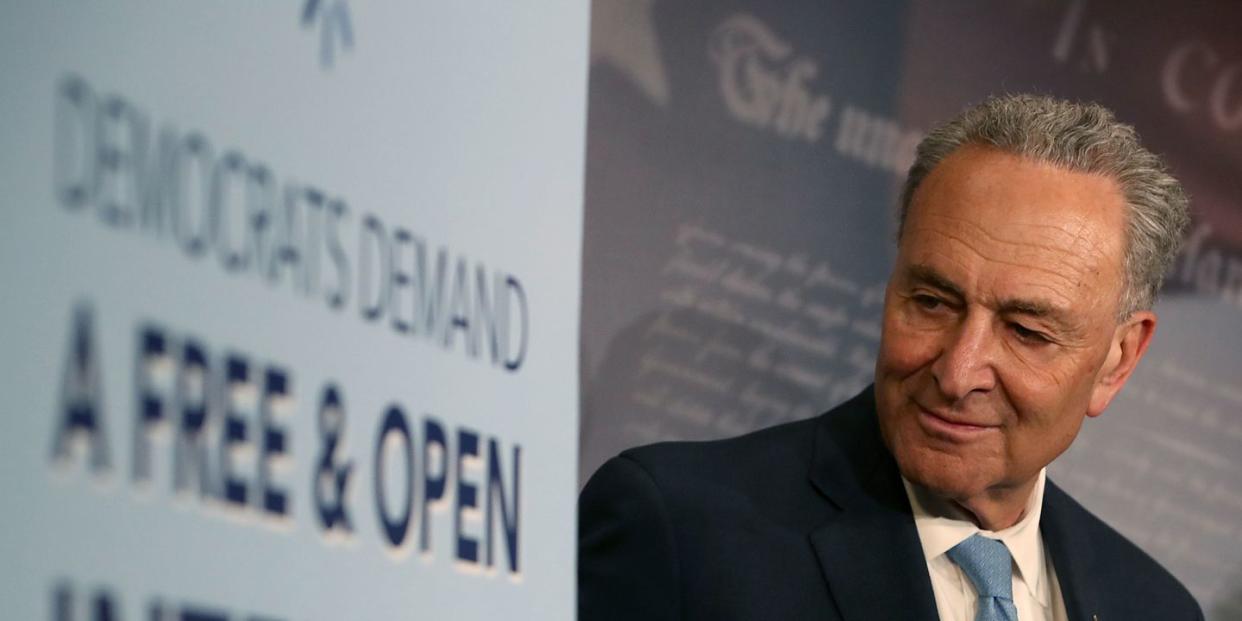The Net Neutrality Decision Was a Small Victory

At the end of business on Wednesday, the Senate did a remarkable thing-on a bipartisan basis, it pushed back against Ajit Pai and the Federal Communication Commission’s attempt to do away with net neutrality, passing a Congressional Review Act resolution that would reverse the FCC’s ruling that would have eliminated net neutrality in June. This was one of the first successful actions taken by the Senate to undo some of the damage being done within the administrative state by this administration*. Three Republicans joined every Democrat in voting for the CRA, but it was John Kennedy, Republican of Louisiana, who had the best explanation for why he crossed the aisle and voted for the measure, telling The Washington Post:
“It was a fairly close call, but I’ll tell you what it comes down to: the extent to which you trust your cable company. If you trust your cable company, you’re not going to like my vote today. If you don’t trust your cable company, you will.”
The issue is far from settled. The measure now must go to the House of Representatives where, as Wired points out, its odds of survival are pretty long.
In the House, they'll have to woo more than 20 Republicans, even with unanimous Democratic support. Meanwhile, the White House has expressed support for FCC chair Ajit Pai's decision to reverse the Obama-era rules, and Trump denounced net neutrality in a 2014 tweet. It's a longshot, but it's not quite impossible. Trump is known to change his mind from time to time, and House Republicans could decide that voting against net neutrality would be politically problematic.
Nevertheless, this was a major victory for both popular sentiment and common sense. Net neutrality is favored overwhelmingly across the board, according to almost every poll that’s been done on the subject. It also was a big victory of Senator Edward Markey, Democrat of Massachusetts, who first co-sponsored net neutrality legislation over a decade ago when he was in the House, and who Wednesday led the effort to brand net neutrality ultimately as a free-speech issue, telling the Senate,
The votes we are about to cast are nothing short of the most consequential votes on the internet in the history of this body. We will take the important step to reaffirm the principles of nondiscrimination online or we will allow a few companies to control how we access the internet.
Markey’s co-sponsor in the Senate back in the day was Ron Wyden, Democrat of Oregon. After the vote, Wyden credited the Senate vote to, yes, the democratization of the Internet. “I’m not sure everyone was ready for the grassroots enthusiasm that really picked up steam behind this issue,” he said. “Then, today, it became clear that the arguments associated with Mr. Pai’s position simply didn’t add up.
So far in this administration, the Republican majorities in the Congress regularly have used the CRA mechanisms to roll back measures put in place by the Obama administration that they, and their donor class, do not like. These have included regulations on energy companies overseas and a rule aimed at curbing the practice of allowing mountaintop removal mining companies to dump their waste products into the streams below, with deleterious effects on the entire downhill ecosystems, including the human ones. So there certainly is a bit of sauce-for-the-goose in what the Senate did Wednesday. And, as Senator Kennedy suggested, it stood up for everyone currently on hold with their cable companies, a constituency thought by many to number in the millions.
Respond to this post on the Esquire Politics Facebook page here.
You Might Also Like

